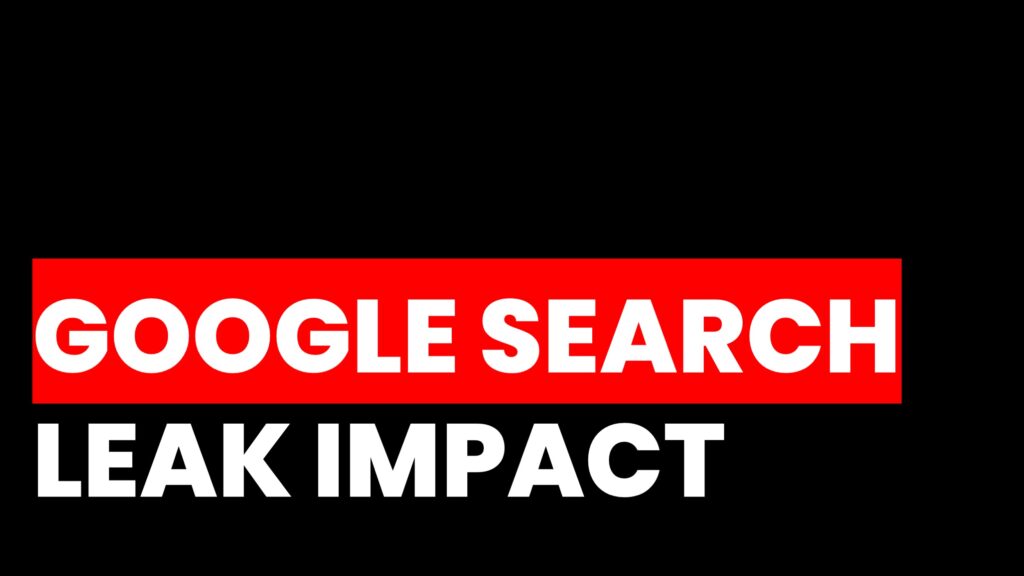How The Google Search Leak Impacts Your Brand’s SEO Strategy
In May 2024, a leak of internal Google Search API documents offered unprecedented insight into the intricacies of Google’s search algorithm, revealing details that contradicted many of the company’s public statements over the years. This disclosure has ignited debate among marketers and SEO professionals as they analyze the implications of this new information. Understanding what we’ve learned, why it matters, and how to adapt our strategies moving forward is crucial for navigating these revelations effectively.
What Did We Learn?
One of the most surprising insights from the documents is the role of click data from Chrome browsers in page ranking. Contrary to Google’s past public statements, the documents indicate that Google does utilize click data as a factor in determining the quality and ranking of content. This means that not only the number of clicks but also the quality of those clicks (such as session duration and interaction depth) can influence a page’s ranking.
Key Points from the Leaked Documents:
- Ranking Factors: The documents confirm many suspected ranking factors and introduce some previously unknown ones. This includes details on how Google evaluates content quality, user engagement, and site authority.
- Content Limitation: Google can limit specific types of content in search results. This affects content that may not align with their quality guidelines or content that could be deemed low value.
- User Engagement Metrics: Metrics such as clicks and dwell time are used diagnostically to assess content performance. This aligns with our ongoing focus on improving user experience and engagement through blog content on brand sites.
- Google’s Response: Google has responded to the leak, emphasizing that the documents lack context and should not be taken as a definitive guide to their ranking processes. This highlights the complexity and evolving nature of their algorithms.
Does This Matter?
The impact of these revelations varies depending on who you ask. Leaders in the SEO industry, such as Wil Reynolds and Rand Fishkin, have offered differing opinions on the significance of the leaked information. Some believe it confirms long-held suspicions about Google’s use of user behavior data, while others caution against overreacting to the findings.
Ultimately, while the documents provide valuable insights into Google’s operations, they also have limitations. It’s important to remember that SEO is a constantly evolving field, and what works today may not be as effective tomorrow. Our key takeaway is to use this information to enhance our understanding of Google’s algorithms, but not to rely solely on these findings for our SEO strategies.
What Do We Do Next?
Given the new insights from the leaked documents, here are some actionable steps we are helping brands take to optimize their SEO strategy:
1. Review Page Titles and H1 Tags
Ensure that page titles and H1 tags accurately match the content and target keywords. This alignment helps search engines understand the relevance of your content, improving your chances of ranking higher.
2. Monitor Bounce Rate and Session Duration
Evaluate the bounce rate and session duration of blog content. High bounce rates and short session durations can indicate that users are not finding the content engaging or relevant. Identify areas for improvement and make necessary adjustments to enhance user engagement.
3. Establish a Singular Author for Blog Content
Consider assigning a singular author for blog content to build authority and trust with target audiences. Having a consistent author can enhance credibility and improve the overall quality of the content.
How Tandem Theory Can Help
Navigating the complexities of SEO requires expertise and a strategic approach. At Tandem Theory, we specialize in creating tailored SEO strategies and content at scale that meet your specific needs to increase brand discovery and website traffic. Our team of professionals is dedicated to helping you achieve your goals through transparent fees, collaborative efforts, and a deep understanding of your challenges. Contact us today to see how we can help you leverage these new insights and drive your SEO success.
Reach out to us today: hello@tandemtheory.com
Common Questions
1. What was revealed in the Google Search API documents leak?
The leak revealed that Google utilizes click data from Chrome browsers as a factor in page ranking, highlighting the importance of user behavior metrics in SEO.
2. How does click data impact page ranking?
The number and quality of clicks, including session duration and interaction depth, can influence a page’s ranking on Google.
3. Why is it important to review page titles and H1 tags?
Ensuring that page titles and H1 tags match content and target keywords helps search engines understand the relevance of your content, improving your chances of ranking higher.
4. What should I do if my blog content has a high bounce rate?
Evaluate the content to identify areas for improvement. Enhance the relevance and engagement of your content to reduce bounce rates and increase session durations.
5. How can Tandem Theory assist with SEO strategies?
Tandem Theory offers tailored SEO strategies, expert guidance, and collaborative efforts to help you optimize your content and achieve better search engine rankings.
